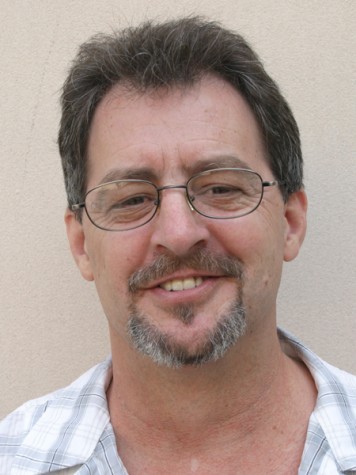President Barack Obama hosted a teleconference Monday morning with student journalists from colleges and universities across the nation to discuss steps his administration has taken to address higher education concerns of young Americans.
In his opening remarks, the president said that the United States has fallen behind in education.
“In a single generation we’ve fallen first to 12th in college graduation rates for young adults,” he said. “And if we’re serious about building a stronger economy, making sure we succeed in the 21st century, then the single most important step we can take, is to make sure that every young person gets the best education possible. .”
In Obama’s 2009 State of the Union address he proposed that by 2020, the United States would once again have the highest proportion of college graduates in the world.
On Monday he discussed the policies his administration is planning to implement, as well as those that have already been implemented, to reach this goal.
One of the steps the president is taking to make education more available to students is by changing the way federal student loans are administered.
“Instead of handing over $60 billion in unwarranted subsidies to big banks, that were essentially getting this money to fulfill the loans that were guaranteed by the federal government, we’re redirecting that money so that it goes directly to students,” he said. “And that’s allowing us to support community colleges and make college more affordable for nearly 8 million students and families.”
The passage of the Affordable Health Care Act earlier this year is also expected to help students, as it allows young adults to remain under their parents’ health care plans until the age of 26.
Another step the Obama administration is taking is to ensure that higher education creates a workforce that will be ready for new jobs in the future. Obama said that community colleges will play a crucial role in this step and has planned a first-ever White House summit on community colleges for next week.
“That way stakeholders are going to be able to discuss how community colleges can make sure we’ve got the most educated workforce in the world in relevant subjects that help people get jobs,” he said.
The third step of the higher education strategy is to make sure more students graduate from college.
The president said that more than one third of the nation’s college students and more than one half of minority students fail to obtain a degree even
after six years.
“And that’s a waste of potential, particularly if folks are racking up big debt and then they don’t even get the degree at the end – they still have to pay back that debt, but they’re not in a stronger position to be able to service it.”
Obama said that while it is ultimately up to students to finish school, his administration can help in eliminating certain barriers, particularly for students who attend school while working or raising families.
“So that’s why I’ve long proposed what I call a college access and completion fund, which would develop, implement and evaluate new approaches to improving college success and completion, especially for kids from disadvantaged backgrounds,” he said.
The administration is also ensuring that younger veterans receive educational support with a post-9/11 G.I. Bill.
The president has included undocumented students in his plan for a more accessible higher education and said that the DREAM Act needs to be passed.
“Some of you are probably aware this is important legislation that will stop punishing young people who – their parents brought them here; they may not have been documented, but they’ve for all intents and purposes grown up as American young people,” the president said.
The DREAM Act would allow these students to obtain legal status by continuing with their higher education or serving in the U.S. armed forces.
President Obama entertained questions from four student journalists upon explaining the gist of his higher education strategy.
Colin Daileda from Radford University in Virginia asked what other steps the president is taking to help students attain a level of stability after college, apart from the Affordable Health Care Act.
“The key is for us to keep on improving the economy, and that’s going to be my number one priority over the next several years,” Obama said. “If . we’re investing in small businesses so they can open their doors and hire more workers, if we’re . investing in clean energy – all those things are going to open up new opportunities for young people with skills and talent for the future.”
In subsequent questions, the president clarified other ways in which it would be easier for young Americans to obtain a higher education.
In modifying the way federal loans are administered, student graduates will not be required to pay more than 10 percent of their salaries per month to fulfill their loans. Additionally, graduates who enter public service will be forgiven any remaining student debt after 10 years as long as they keep up with their payments.
Although young adults can now stay under their parents’ health care until the age of 26, this provision of the Affordable Health Care Act assumes that the person’s employer does not offer health care. Should an employer provide health care for a young adult, this person cannot opt to be under his or her parents’ plan instead, and must accept the employer’s offer.
Obama closed by encouraging young adults to remain optimistic about the future.
“I know we’ve gone through a tough time these last two years. And I do worry sometimes that young folks, having grown up or come of age in difficult economic times, start feeling as if their horizons have to be lowered and they’ve got to set their sights a little bit lower than their parents or their grandparents.? And I just want to remind people that you guys all have enormous challenges that you’re going to have to face, but you continue to live in the most vibrant, most dynamic, wealthiest nation on Earth.”
He added that in order to overcome the obstacles faced by today’s generation, students should maintain an awareness of politics and actively take part.
“We’ve got an election coming up.? I want everybody to be well informed and to participate.? If you do, then I feel very optimistic about the country’s future.”


